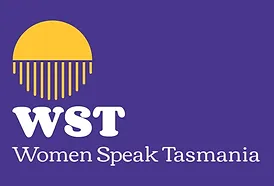by Kathleen McDeavitt, J. Cohn, and Stephen B. Levine, published in the Journal of Sex & Marital Therapy* (2025, Vol. 51, No. 2, pp. 175-199).
This document critiques four articles that challenged the Cass Review, a report on pediatric transgender healthcare commissioned by the UK’s National Health Service (NHS). The analysis covers the document’s purpose, structure, key arguments, evidence, strengths, weaknesses, and implications.
Overview
The document is a scholarly article that responds to critics of the Cass Review, a comprehensive evaluation of pediatric transgender healthcare published in April 2024. The Cass Review assessed the evidence for puberty blockers (PBs) and gender-affirming hormones (GAH) in minors with gender-related distress, concluding that the evidence base is insufficient and recommending cautious use of hormonal interventions alongside further research. The authors—McDeavitt, Cohn, and Levine—aim to correct what they perceive as inaccuracies and misrepresentations in four critiques of the Review: a white paper from Yale Law School’s website (the “Yale Critique”), and articles by Grijseels (2024), Horton (2024), and Noone et al. (2024).
Purpose
The primary purpose of the document is to:
– Correct misinformation: Address factual errors and lack of context in the critiques.
– Defend the Cass Review: Uphold its evidence-based approach and recommendations.
– Support ethical practice: Emphasize the importance of accurate information for informed consent in pediatric transgender healthcare.
The authors argue that the critiques misrepresent the Review’s findings, processes, and the broader evidence base, potentially influencing clinical practice and public perception in a field marked by controversy and polarization.
Key Arguments and Evidence
The document systematically addresses perceived flaws in the critiques across five areas:
1. The Cass Review’s Contents and Processes
- Claim: Critiques suggest the Review’s recommendations align with WPATH and Endocrine Society guidelines.
- Rebuttal: The Review advocates for comprehensive mental healthcare, unlike WPATH and the Endocrine Society, which focus on eligibility for hormonal interventions. The Review criticized these guidelines for overstating evidence.
- Evidence: Systematic review by Taylor et al. (2024a) found WPATH and Endocrine Society guidelines lack rigor.
- Example (Table 1): The Yale Critique claimed referral increases were not “exponential.” The authors provide data (Figure 1) showing an exponential fit and note WPATH’s own use of the term.
2. The Pediatric Transgender Healthcare Evidence Base
- Claim: Critiques imply the evidence for PBs and GAH is conclusive or misrepresent study findings.
- Rebuttal: Systematic reviews consistently find the evidence inconclusive or of low quality. Individual study misrepresentations (e.g., Tordoff et al., 2022) are corrected.
- Evidence: Multiple systematic reviews (e.g., Ludvigsson et al., 2023; NICE, 2020a, 2020b) cited by the Review and the authors.
3. Existing Clinical Practice Guidelines
- Claim: Critiques assert the Review endorsed WPATH and Endocrine Society guidelines.
- Rebuttal: The Review criticized these guidelines for lacking evidence-based rigor, contrasting with the critiques’ portrayal.
- Evidence: Taylor et al. (2024a) systematic review findings.
4. Evidence-Based Medical Practice and Guideline Development
- Claim: Critics misunderstand evidence evaluation and guideline development.
- Rebuttal: The authors emphasize the need for rigorous, evidence-based approaches, which the Review followed.
- Evidence: References to GRADE and other methodological standards.
5. The Validity of the Cass Review’s Findings
- Claim: Critics argue the Review’s conclusions are invalid or biased.
- Rebuttal: The Review’s methodology was comprehensive and evidence-based, supported by systematic reviews and broad consultation.
- Evidence: Cass Review’s engagement with over 1,000 stakeholders and its commissioned research.
Conclusion
The document is a robust defense of the Cass Review, systematically dismantling perceived inaccuracies in its critiques. It positions the Review as a balanced, evidence-based contribution to a contentious field, while critiquing the critics for errors and lack of context. By emphasizing rigorous evidence and ethical considerations, it contributes to the ongoing debate about how best to support minors with gender-related distress, though its impact may be tempered by its technical focus and the broader politicized environment.
access the full article:
https://www.tandfonline.com/doi/full/10.1080/0092623X.2025.2455133#abstract
